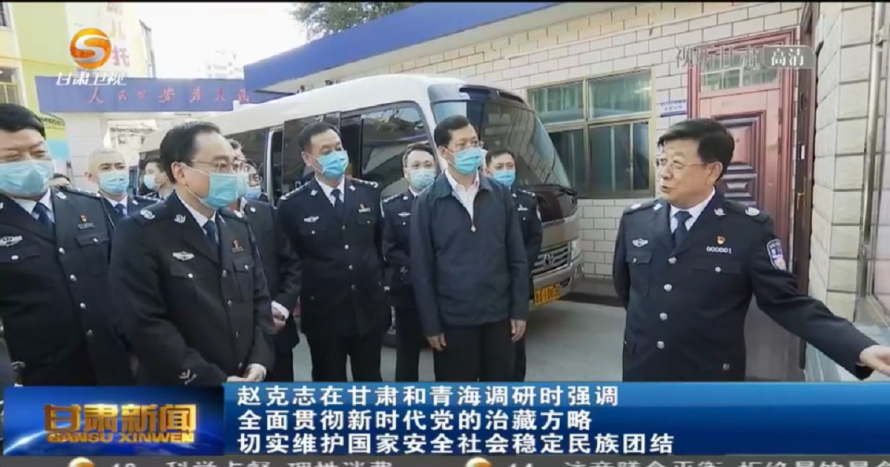Close on the heels of two other senior leaders’ visit to Tibetan areas this month, China’s State Councilor and Minister of Public Security Zhao Kezhi visited Gansu and Qinghai provinces Sept. 19-21 and asked Tibetans to “study and implement the spirit of General Secretary Xi Jinping’s important speech at the Seventh Central Tibet Work Forum.”
State media reported that during his trip to Gansu, Zhao interacted with grassroots public security units, residential communities, religious sites and police officers.

Focusing on the theme of confronting “separatism” and the risks to Chinese rule in Tibet highlighted at the seventh Tibet work forum—which took place in Beijing in August—Zhao is quoted in state media as saying Tibetans must “deepen the struggle against separatism” and “strive to maintain social stability, and ensure the implementation of the Party Central Committee’s major decisions and deployments.”
Stressing challenges to this, Zhao is reported by state media as saying, “We must fully understand the severity and complexity of the struggle against separatism, resolutely overcome blindly optimistic thinking and paralysis, effectively respond to the thought preparation and work preparation of sharp and complex struggles, and resolutely guard against and resolve major risks and challenges.”
Officials’ visits
Zhao’s visit followed the journeys to Qinghai and Sichuan this month by Politburo Standing Committee member Wang Yang and United Front Minister You Quan. Wang and You also spread propaganda about implementing the goals of the work forum.
The fact that Zhao holds the position of China’s minister of public security has particular significance for his involvement with Tibet-related issues, as he oversees the security apparatus that controls the Tibetan people.
During the annual “Two Sessions” meeting in Beijing in May this year, Zhao met with the National People’s Congress delegation from the Tibet Autonomous Region, telling them among others, “We must do our best on the anti-separatism campaign and the implementation of various measures to maintain stability, strengthen infrastructure construction of stability, make preparations for long-term struggle.”
Zhao is formally an NPC delegate from the TAR, although he has no connection with it.
During last year’s NPC session too, Zhao was assigned to meet with the TAR delegation. At that time, state media outlet Xinhua reported that he “called for efforts to firmly implement the Party’s strategy for governing Tibet.”
Zhao had travelled to Inner Mongolia (referred to by Mongolian activists as Southern Mongolia) following protests there against the decision to impose Mandarin as the medium of instruction (the same move that China is making in schools in Tibet) on Sept. 2 and asked the security personnel to “severely clamp down on domestic and foreign forces that carry out infiltration and sabotage, and it should go deeper in promoting the fight against separatism.”